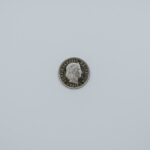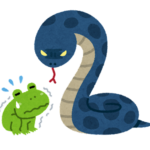Oni no Inu Ma ni Sentaku (鬼の居ぬ間に洗濯 – When the Cat Is Away, the Mice Will Play)
Oni no Inu Ma ni Sentaku
鬼の居ぬ間に洗濯
While there are no scary or annoying people around, you can forget about daily hardships and relax.
こわい人や気兼ねする人がいない間は、日ごろの苦労を忘れてゆっくりとくつろぎたくなるものです。
Such a situation can be described as the Japanese proverb oni no inu ma ni sentaku (鬼の居ぬ間に洗濯).
そのような状況は、「鬼の居ぬ間に洗濯」ということわざで表現されます。
・Oni (鬼) means “ogre.”
・I/iru (居/居る) means “to exist.”
・Nu (ぬ) is a negative suffix.
・Ma (間) means “while.”
・Sentaku (洗濯) means “washing.”
・I/iru (居/居る) means “to exist.”
・Nu (ぬ) is a negative suffix.
・Ma (間) means “while.”
・Sentaku (洗濯) means “washing.”
「鬼」・・・”ogre”
「居/居る」・・・”to exist”
「ぬ」・・・否定の接尾辞
「間」・・・”while”
「洗濯」・・・”washing”
「居/居る」・・・”to exist”
「ぬ」・・・否定の接尾辞
「間」・・・”while”
「洗濯」・・・”washing”
Therefore, the literal meaning of this proverb is “washing while ogres are away.”
したがって「鬼の居ぬ間に洗濯」の文字どおりの意味は、”washing while ogres are away” となります。
In this context, oni is used as a metaphor for “scary person,” and sentaku implies “cleansing one’s life.”
ここで、「鬼」は「こわい人」の比喩として、「洗濯」は「命の洗濯」の意味で使われています。
In English, there is a similar phrase, “When the cat is away, the mice will play.”
英語にも、「猫がいないとき、ネズミは遊ぶ (“When the cat is away, the mice will play.”)」という似た表現があります。




